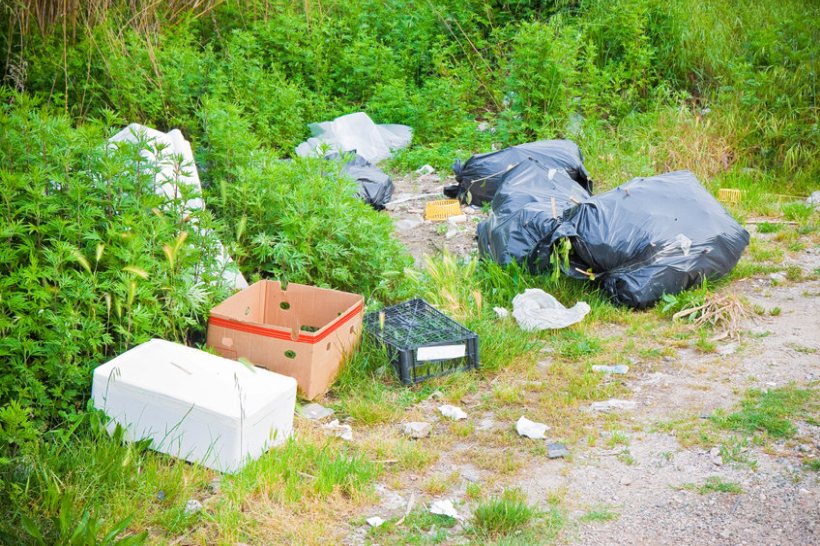
Tougher penalties for flytipping offenders and increased protection for victims contained in proposed Scottish legislation has been described as 'welcome and long overdue'.
Scottish Land & Estates (SLE) has submitted its consultation response for a proposed Member’s Bill in the Scottish Parliament brought forward by Scottish Conservative MSP, Murdo Fraser.
Proposals within it include improvements in how flytipping incidents are recorded as well as strict liability for those who dispose of the waste.
A national database should be created to monitor and record incidents, Mr Fraser's Bill details, so that it can be used as a tool that will aid detection and support the prosecutions of offenders.
The Member's Bill follow a Scottish government national litter and flytipping strategy consultation, which concluded in March.
SLE said the changes suggested were 'most welcome', with tougher deterrents that would provide improved tools to tackle the widescale problem.
The rural business group called flytipping a 'national shame' which became 'significantly worse during the pandemic' .
Simon Ovenden, policy adviser at SLE, said: "It will take a collective effort to tackle this blight.
"Where flytipping has occurred across local authority boundaries, there needs to be a method of collaborative working developed which currently does not exist.
"Presently, if flytipped material is proven to have been taken from one area local authority area, but tipped in another, neither authority is likely to investigate.
"And consequently no scrutiny or prosecution takes place – this needs to change and superior reporting systems can help.”
As part of his proposals, Mr Fraser also wants to change legal liability so that victims of flytipping are not also legally responsible for removing the waste.
Mr Ovenden said this would also be a 'long overdue' change to the law: "This is possibly the only crime in Scotland where the victim, in this case the landowner, can be held financially responsible and threatened with prosecution for having a crime committed against them.
"If waste contains hazardous waste such as asbestos, a seven-day warning can be issued by local authorities, with the land manager additionally being threatened of possible prosecution.
"This appears to now be an established process across Scotland where the victim is made to pay, and not the offender or the local body responsible for such waste."
In the vast majority of situations, flytipping is an offence committed by two or more parties. One is the originator of the waste, be that a householder, business or perhaps even the flytipper themselves.
The second other party is the person who actually commits the flytipping offence. SLE said both should be considered jointly responsible for the crime and face the same penalties.
Mr Ovenden said the principle of ‘the polluter pays’ must be adhered to: “All too often, the cheap option is taken when hiring an individual or company to dispose of waste and this leads to materials being flytipped rather than being properly disposed of.
"If these changes were introduced, an onus would be placed on a waste customer to only hire a licensed contractor which would then help to drive out criminals from the industry.
"This change would also require a public information campaign to publicise the legislative change.”
